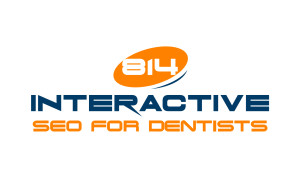Anyone who is just now starting to learn about SEO is probably flabbergasted at just how difficult and complicated it sounds.
There are so many acronyms and so much technical jargon, along with talk of algorithms, black hat and white hat strategies, trends, updates named after animals, etc., that even trying to get your feet wet may seem overwhelming.
I recently had a dentist contact me, wanting to hand over his entire campaign, simply because he had started reading a few SEO blogs and was so frustrated, unable to understand anything that any of them were saying.
Those who have been in the search engine optimization world for a long time know that SEO is not complicated. It’s actually really simple.
The concepts are simple. People have started to make it complicated in recent years to try to trick business owners into hiring professionals to handle their campaigns.
And while someone with experience and whose entire job it is to rank websites is an asset for any dentist’s office, fear of the strategy should not be the reason you ask for help.
Here is what your website needs:
- Excellent page and blog content.
- A high quality website design.
- Other people talking about you.
This is essentially what a website would have needed to rank on Google in 1998, and it is essentially what a website needs to rank today.
And any dentist can easily understand the importance of those things.
They are very similar to the things that your practice needs in order to be successful: effective services, a clean, pleasantly decorated office, and word of mouth advertising.
Those who try to tell you that dental SEO is more complicated than these three points are necessarily wrong—there are lots of ways you can make search engine optimization complicated if you want to, but you don’t need a complicated campaign.
Most dentist’s offices are only trying to reach out to potential patients in a very small area of the world. You are not trying to beat out some multinational company with hundreds of thousands of dollars to spare for the SEO budget.
You need effective SEO that, if the time should come, you can manage on your own.
Is It Really That Simple?
Yes, there is a little bit more to each of those three aspects than it may appear at first glance.
Coming up with and writing content is not necessarily easy—but the concept is simple.
Anyone who tells you that you need a certain number of keywords or that they have to be inserted into a very specific place in the blog post, is making SEO more complicated than it is.
Any effort put into making sure every single heading contains an awkwardly worded keyword is probably not returned in the efficacy of the campaign.
All of the hundreds of ranking factors that Google uses to evaluate websites do ultimately come down to these three things, however: how good your content is, how well your website functions, and whether or not people are talking about you.
Content
Even if you’ve only just started to learn about dental SEO, you’ve probably already heard the saying, “Content is king.”
Content has been king, from the beginning of advertising, but it doubly true online.
Great content means a high page ranking.
Terrible content means a low page ranking. And content is more than just the written word. It is images, videos, podcasts, infographics, etc.
For dental SEO, webpage content is the most important, followed closely by blog content.
Having a blog is an integral part of drawing people to your website, and just like with your webpage content, the better it is, the more people are likely to see it.
Great content is also more likely to be shared, helping with that third aspect.
What exactly is great content?
It’s content that your target demographic is likely to want to read and engage with.
For dentists, that probably means webpage content about what you offer in your office.
On your blog, topics related to dental health.
This content should contain keywords that your target demographic is likely to search, but keywords should not be more important than the quality of the content.
Webpage Design
Having great webpage design is more than just having a page that looks nice.
Your website should look nice—it is making the first impression that many people will have of your office.
The underlying DNA of that website will also affect your ability to rank, however.
A clean website will load faster, making it more useful to your potential patients, and therefore making you rank higher.
A website with a stylish, but functional design will be easier to navigate, again making it more useful, and therefore, again, rank higher.
Chatter
In the SEO world, you might here the term “authority.”
In general, this is a catch-all for outside signals that affect how your website ranks. If you write quality content that people want to link back to because it is interesting to read, is factual, and contains insights or good information, your website will rank higher.
Google will look for these links.
The Bottom Line
There are other things that are important for dental SEO.
But none are as important as these three things. Once you have these three things covered, you probably have a stable search engine optimization strategy that is serving you well.
Don’t get bogged down in the jargon!




